On my Bookshelf | Sabiha Çimen – Hafiz
On my Bookshelf
In this column, I occasionally present a photo book that is close to my heart. It is not – or not necessarily – a new publication. It is simply a book that somehow fell into my hands and that I would like to recommend to others. And yes – of course it’s on my bookshelf.
It’s a bit of a continuation of my Photo book of the month column – just not necessarily as regular as before. And I’ve generally made the column a bit shorter and tighter. I hope you’ll enjoy it!
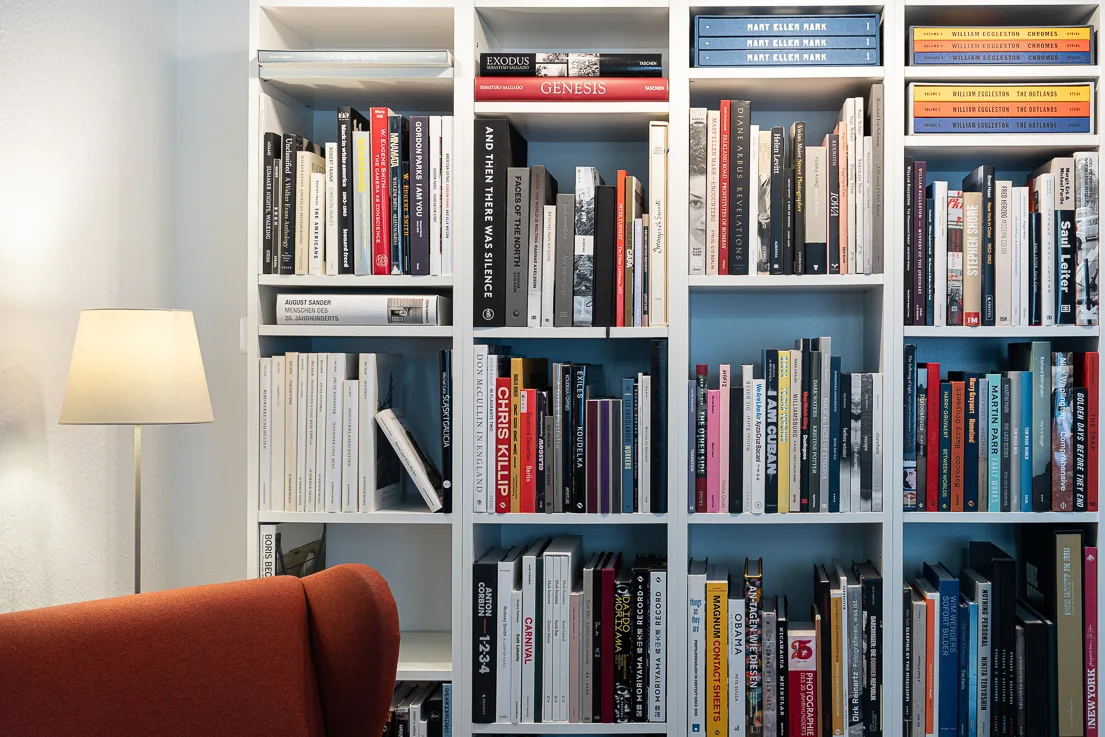
Prologue
After briefly introducing my personal book of the year 2024 in my last book description, I would now like to start the year 2025 fresh. And I use the word ‘fresh’ ambiguously here. After all, I had also announced that I would devote more attention to more current and younger photographers this year. And I’m starting off with a real ‘banger’ here in January. I chose a book that I had also bought just a few months earlier. It is the book ‘Hafiz’ by the Turkish photographer Sabiha Çimen.
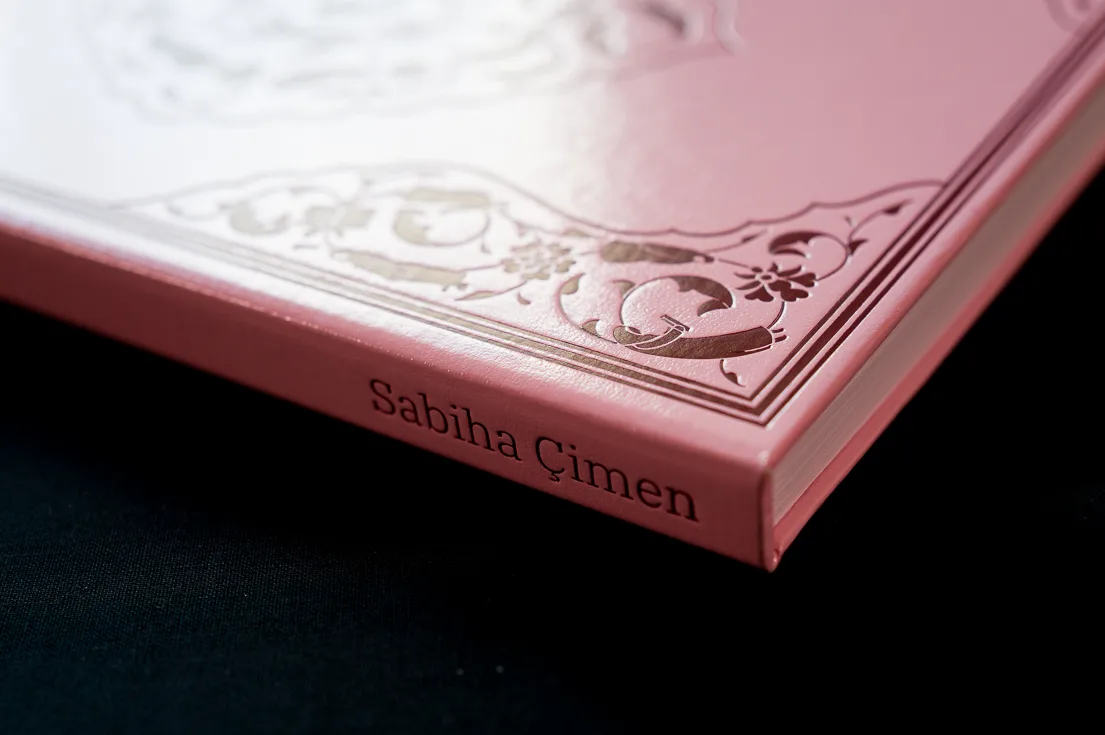
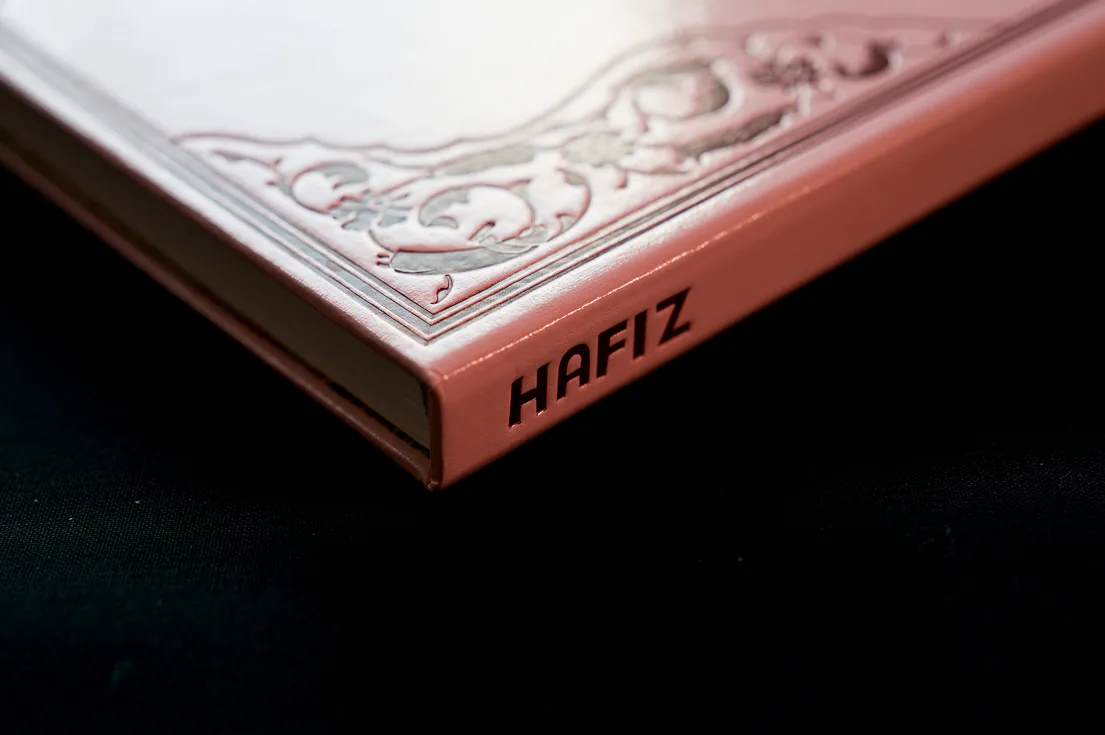
To come straight to the point: Hafiz would easily have had the potential to be my book of the year. But this is not a competition. However, Hafiz is so good, both photographically and in terms of content, that I am very happy and excited to finally be able to present it to you here. Not only did it inspire me as a photographer. I also learned a lot from dealing with this book and its subject.
About the Photographer | Sabiha Çimen
Sabiha Çimen was born in Istanbul, Turkey, in 1986, as the child of a family with a Kurdish-Persian background. She now lives alternately in Istanbul and New York City.
In the context of this book, Sabiha Çimen’s background alone is very interesting. And I don’t just mean the fact that she herself – together with her twin sister – attended a Girl Quran School in the Alibeyköy district of Istanbul for three and a half years.
Sabiha Çimen is a self-taught photographer. After her school education and before her university studies, she used the time to teach herself how to take photographs. The reason why she had this time is also indirectly related to the subject of the book. As a devout Muslim, Sabiha Çimen refused to attend university at the time because of the headscarf ban. It remained in force in Turkey until 2013, and also applied to the country’s universities.
After this ban was lifted, Çimen initially studied international trade and finance at Istanbul’s renowned Bilgi University. However, she was not really interested in these subjects. Her master’s degree in cultural studies was a little closer to her future career, but still not really connected to it.
The path to becoming a photographer
It was only when she bought a used Hasselblad medium format camera in 2015 that she really got into photography. And then quite quickly and also quite steeply. Her first major project, which is the subject of this book, was ‘Hafiz: Guardians of the Qur’an’ from 2017 to 2021. She has already won several awards for this work between 2018 and 2022, including second place in the World Press Photo, Long-Term Project, 2020. And the book ‘Hafiz’ discussed here won the Paris Photo–Aperture First PhotoBook Prize in 2022.
She was named a Magnum nominee in 2020 and ist now an associate photographer at Magnum Photo Agency.
About the Photo Book | Hafiz
This book is a tactile experience and already a work of art in itself, with a rather unusual design: it opens like a bag – or like a box. This ‘box’, or cover, is decorated with floral patterns, which are traditionally used for storing the Quran. The inside of the book cover, on the other hand, is decorated with beautiful traditional Ebru painting, also called paper marbling.
But it is the content that is most important, not the appearance. And this book really does have it all. In Hafiz, Sabiha Çimen presents the reader 99 images from her above-mentioned long-term project, in which she accompanied and photographed girls at several Quran schools in five cities in Turkey. All the images were taken on medium-format film in 6 × 6 format.
Hafiz was published by Red Hook Editions in Brooklyn, New York City. Fortunately, at least the second edition is still available and comes at a reasonable price. There is also a beautiful black Collector’s Edition, but you have to pay $350 for that. Although I did briefly consider it… 😉
What do we see?
What Sabiha Çimen has photographed in this project is truly remarkable. She takes us on a journey into the girls’ own universe in the Quran schools – in portraits, moments and still lifes of this world. We see not only the obvious or the expected (by us), but also the unexpected and the normally invisible.
These are images from everyday life, we see moments that we cannot categorise but can interpret for ourselves. We witness trivialities and probably also – as she herself mentions – small and silent rebellions by the girls. And we don’t get all this from the perspective of a complete outsider, but from an insider. Because, as mentioned above, Sabiha Çimen herself attended one of these schools. So, the girls are somehow her sisters in spirit.
They are so much more than a piece of fabric. Through photography, I hope to show the hidden power within them.
Sabiha Çimen
And it goes without saying that I – coming from a different cultural background and also being a man – would never get such insights. That alone is a gift and a privilege. And I hope that this book contributes to gaining more respect and understanding for other ways of life, cultures and world views.
About the context
Even if some of the images remain (or should remain) ambiguous and mysterious and open to individual interpretation, Çimen guides us to greater understanding in some places in her book. On the one hand, Çemin describes each of her 99 pictures at the end of the book, at least very briefly. Secondly, there is a short introduction that explains the context, the title of the book and a few other things.
Here we also learn a lot about the ambiguity of the term ‘hafiz’. Directly translated from Arabic, it means something like ‘protector’ or ‘guardian’. However, it also refers to a Muslim man or a Muslim woman (then called a Hafiza) who can recite the entire Quran by heart – fluently and eloquently. With a book consisting of 114 suras and 6236 verses, this is quite an achievement. On the other hand, Hafiz can also be one of the many names of God. Then as ‘Al-Hafiz’, ‘the Ever-Presenting’.
Brief aside: They say that there are 99 names for God in the Quran – in fact, there are even more in it, strictly speaking. That is why the lists of these names vary somewhat. The number 99 probably simply symbolises ‘one less than infinity’ – and the hundredth name would be unpronounceable for humans anyway.
And then there is an excellent and very personal and emotional essay by Çimen. This is about her experiences in and memories of her own Quran School. You should definitely read these texts and then take the time to really look at each picture in peace. Only then will the big picture of this great work perhaps become clearer in your mind – at least that was the case with me.
Why do I recommend this book?
This book is so breathtakingly good that I don’t even know where to start. You don’t often see such a good combination of outstanding documentary photography and – what actually? Poetry? Fantasy? Daydreaming? Hafiz is at once photographic and educational, explanatory and irritating, sober and mysterious.
Without any apparent chronological or thematic order – at least to me – we see alternating portraits, close-ups or sometimes tightly edited sequences of scenes. Some quite clearly understandable, some rather less so.
In some parts of the book, especially the ones that can be opened up, very exciting sequences come to light. Surprising and sometimes funny, almost comic-like narratives suddenly appear.
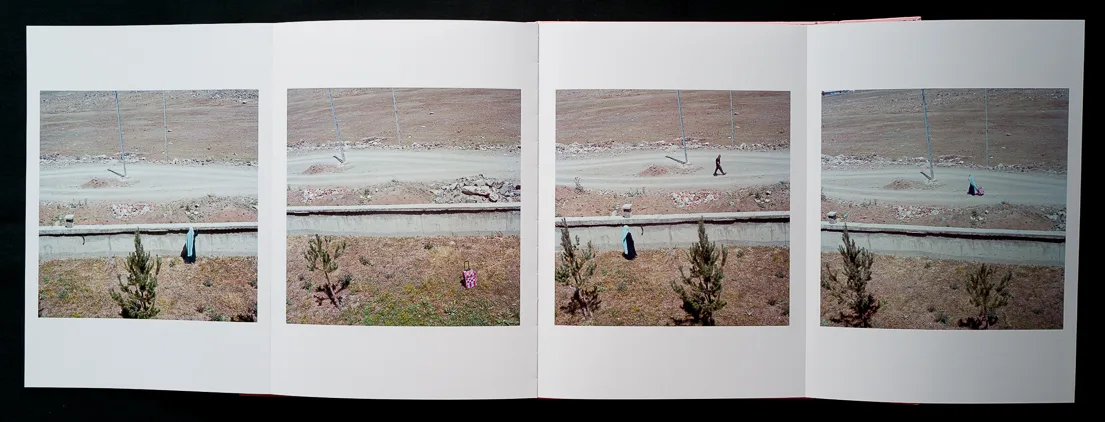
And then there are thought-provoking sequences that are difficult to interpret. All of this is also really captivating and moving in this compilation.
I can only repeat myself. Scrolling through this book and looking at the pictures is a journey into a world completely unknown to me and is as exciting as it is interesting. And it’s simply magnificent photography!
About cultural (miss)understanding
I don’t want to write too much here about the two most obvious topics, namely the image/role of women and religion, although it is likely to be of concern to the photographer.
I am not religious myself and I don’t have a deeper understanding of religion in general, nor can I understand why people are religious. But who am I to judge others for their view of and value for religion? I respect other people’s beliefs. Period.
The second topic that could arise here is almost more complicated and sometimes more controversial. As far as I understand it and have personally witnessed it to some extent, the role and image of women in Muslim-majority countries around the world is far more complex than it is often seen – and commented on – in the Western world. Ignorance, lack of understanding and, unfortunately, often open Islamophobia are not uncommon in debates about this. This is neither good nor helpful in any way.
This also largely applies to the existence and purpose of Quran schools. What people do not understand is often misunderstood and per se disparaged. Unfortunately, this is all too often done without the necessary insider knowledge.
I used to imagine these schools like prisons as a kid, but once inside, I saw I was mistaken. It was a vibrant environment. You couldn’t find such wise and bold women together anywhere else in the world.
Sabiha Çimen
Although I have travelled to many Muslim-majority countries – Arab and non-Arab -, I am of course not an expert on these topics. And I’m certainly not omniscient. But what I do know for sure is that things are not so one-dimensional and are usually very different to how we often see them here ‘in the West’.
That’s why I think Sabiha Çimen’s book and pictures are great in this context. They show in a profound way the beauty, humanity, normality, humour and diversity of our world – even in places where our Western eyes sometimes do not expect it. With this in mind, I would like to end with a quote from an interview with the photographer:
Through their photographs I want to give women the chance to speak for themselves and avoid misconceptions and misinterpretations for these sections of society that are underrepresented — particularly so in Western media.
Sabiha Çimen
The last words
Yes, of course, I have my all-time favourites and classics that I adore above all else. Mark, Kudelka, Smith, Winogrand, Eggleston, Shore,… you name it. But if I had to choose just three books from the last 10 years that I could take with me to a desert island, then ‘Hafiz’ would probably be one of them. It really is a masterpiece that I can only warmly recommend to you.
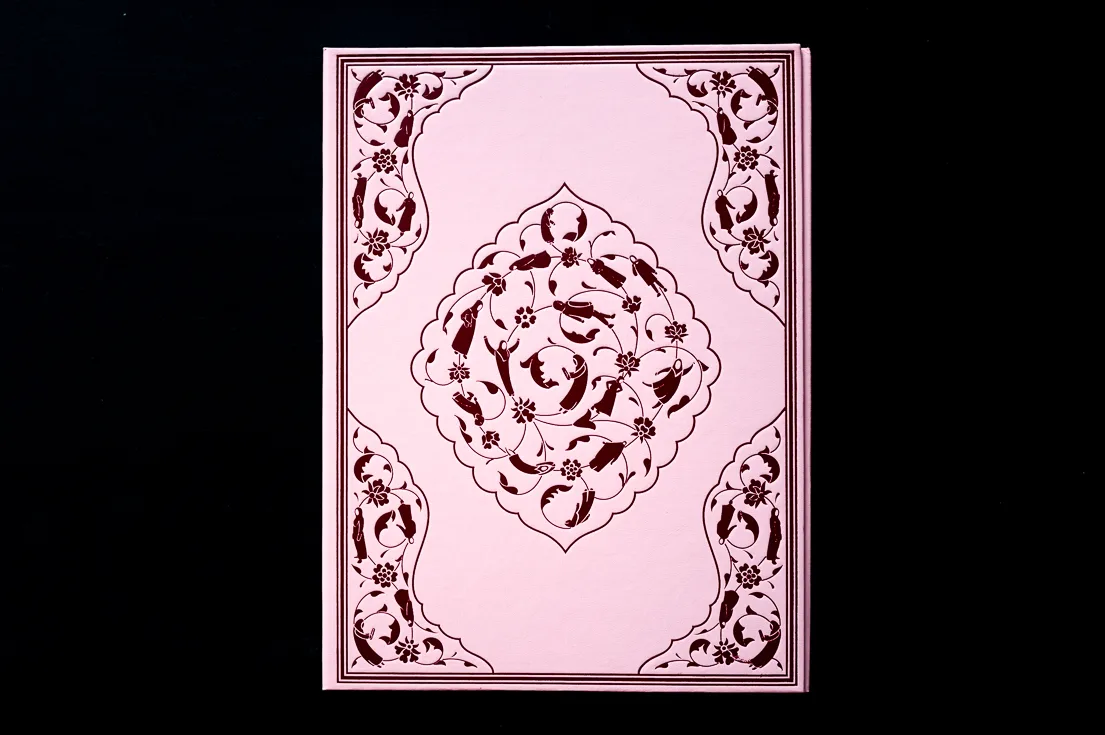
















Thanks. I enjoy this series. It has reminded me of photographers I know and like (and have re-visited after seeing them here), like Mary Ellen Mark; but also has introduced to photographers (and books) that I didn’t know, like Sabiha Çimen.
Hi Rodney,
thanks for reading and glad to hear you’re getting something out of it.
Peter